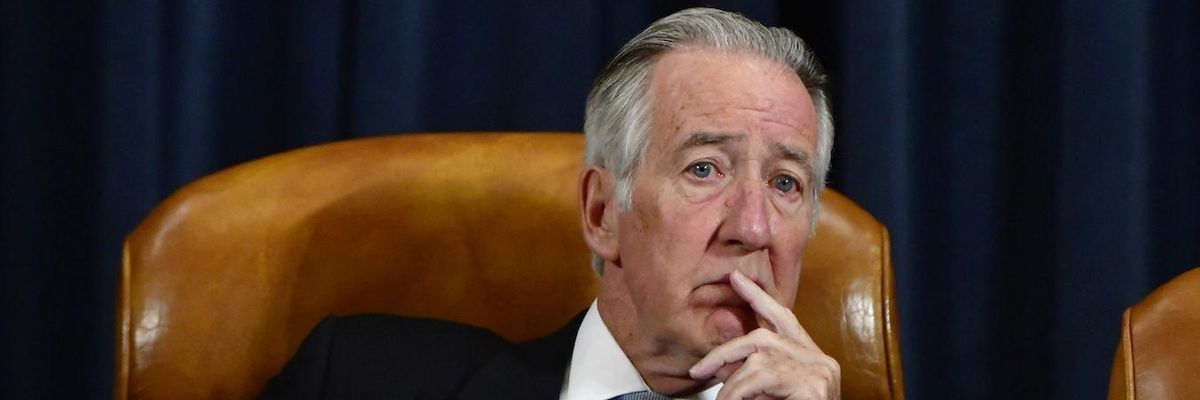In just over three minutes, People's Policy Project founder Matt Bruenig on Tuesday explained in a video posted to social media how a paid leave proposal put forward in the U.S. House would be a "disaster" for working families--and a boon for the private insurance industry.
Produced by the outlet
More Perfect Union, the video describes how House Ways and Means Committee Chairman Richard Neal (D-Mass.)--who counts the insurance industry as his
top contributor since taking office more than three decades ago--put forward a plan to replace President Joe Biden's straightforward proposal to offer 12 weeks of paid leave to new parents through the Social Security Administration (SSA).
Under Biden's plan, the SSA would provide new parents with cash benefits to cover a portion of their wages for 12 weeks after the birth or adoption of a child--a modest proposal considering the amount of paid time off parents have in
other wealthy countries. Ten countries--including Estonia, Japan, Lithuania, and Norway--offer more than a year of paid leave.
Neal's proposal, released by the House Ways and Means Committee last month, suggests that the 16-term congressman believes even 12 weeks of partial pay is too generous for workers in the United States.
Under Neal's plan, Bruenig explains, the federal government would distribute cash benefits not directly to new parents but to employers, which would then pay insurance companies to provide paid leave to workers--if they meet certain criteria.
The proposal, Bruenig wrote in a blog post last month, "is a complicated mess riddled with design problems that could be easily fixed."
As Bruenig explains in the video, Neal's plan contains three major flaws:
- It excludes parents who haven't worked in the three to six months prior to adoption or childbirth, allowing insurers to discriminate against new parents who recently finished school or job training, those with work-limiting disabilities or pregnancies that kept them from working, or who faced unemployment;
- It includes no minimum benefit level, allowing workers to receive benefits equal to or less than 85% of what they earned, so "low-paid workers who cannot afford to give up 15% of their pay would not be able to access the program"; and
- It provides 12 weeks of paid leave per parent, so two-parent households are eligible for twice as much leave as one-parent families, and single parents would be left with higher child care bills.
The proposal "needlessly [turns] Biden's paid leave ambitions into a private insurance giveaway," said Bruenig, by allowing insurance companies to reject an estimated one in three new mothers, based on the first provision, and limit the benefits offered to new parents.
"When we make voters feel that government can't deliver, it hurts the entirety of the progressive agenda."
"It would also be a disaster for the federal budget, because businesses that take a below average amount of paid leave would be able to extract money out of the system for their own profit," Bruenig explained in the video.
Bruenig noted that Neal's plan has won endorsements from the insurance industry, including Prudential, which praised the proposal as a "partnership between employers, employees, and benefits providers," and Sun Life, one of the nation's largest insurers.
As
The American Prospect reported last month, "the American Council of Life Insurers (ACLI), a trade group that
lobbied Neal to include private business, praised the final product... thanking Neal for 'the opportunity to partner and for continued dialogue.'"
Passing Neal's proposal instead of Biden's straightforward paid family leave plan--like other proposals put forth by right-wing corporate Democrats as lawmakers debate the president's Build Back Better agenda--is likely to harm the Democratic Party in upcoming elections, Bruenig said, as well as failing to help working families who have been
demanding paid leave
for years.
"Passing a poorly designed paid leave proposal is a dangerous political game for Democrats," said Bruenig. "Voters would rightly blame them for the difficult and inefficient program they've now been forced to deal with, wiping away what should have been a political winner."
"When we make voters feel that government can't deliver," he added, "it hurts the entirety of the progressive agenda."

